Q
What is the Reslae Value of Proton X70?
As the flagship SUV of a local Malaysian brand, the Proton X70 has an above - average resale price, which is mainly affected by the vehicle's age, mileage, condition, and configuration. According to market data, it depreciates by about 20 - 25% in the first year, and the depreciation rate decreases year by year. A 3 - year - old X70 usually retains 55 - 65% of its original price, and a 5 - year - old one retains around 45 - 50%. High - end versions such as the Premium and Executive models will retain 5 - 8% more of the residual value than the standard version due to their rich configurations.
The key factors affecting the resale value of the X70 include regular maintenance records, accident - free conditions, and the transfer of the original factory warranty (5 years/150,000 kilometers). In addition, local consumers' recognition of the Proton brand and the stable market demand for the X70 also support its used car market. It's worth noting that the Malaysian used car market generally follows the "high depreciation in the first year" rule. However, because Proton models have a high localization rate of parts, their post - purchase maintenance costs are relatively more advantageous than those of joint - venture brands, which has a positive impact on the resale price after long - term ownership.
It is recommended that car owners keep the complete Service Book and choose original factory maintenance first to maximize the residual value. At the same time, note that the 2022 facelift model of the X70 has an about 3 - 5% premium space over the older models due to the upgrade of intelligent connectivity functions.
Special Disclaimer: This content is published by users and does not represent the views or position of PCauto.
Related Q&A
Q
What is EPB malfunctions on Proton X70?
EPB malfunctions (Electronic Parking Brake System malfunctions) on the Proton X70 usually manifest as a warning light illuminating on the dashboard or the system failing to start/release properly. Common causes include the system triggering protection due to excessive brake pad wear, abnormal signals from electronic sensors, insufficient battery voltage affecting module power supply, or the need for software upgrade and reset. When encountering this problem, it is recommended to first try manually resetting by pressing the brake pedal firmly and pulling up the EPB switch for 3 seconds with the vehicle powered on. If it doesn't work, a professional diagnostic tool should be used to read the fault codes. Special attention should be paid to checking the thickness of the brake pads (replace them if they are less than 3mm) and the condition of the wiring connections.
As an electronic component, the EPB system relies more on the stability of the vehicle's overall electrical system than traditional handbrakes. Therefore, during regular maintenance, attention should be paid to checking the health of the battery (especially in hot climates), and long - term parking that may drain the battery should be avoided. The EPB system of the Proton X70 works in conjunction with the ESP Vehicle Stability System. If the malfunction persists, the Auto Hold function may fail. In this case, the authorized service center should be contacted promptly to avoid affecting driving safety.
The rainy and humid environment in Malaysia may accelerate the oxidation of the braking system. It is recommended to check the lubrication of the brake caliper guides every 20,000 kilometers, which is very helpful for maintaining the sensitivity of the EPB actuator.
Q
How many cc is a Proton x70 engine?
The Proton X70 comes with two engine displacement options: a 1.5-liter turbocharged (1498cc) and a 1.8-liter turbocharged (1798cc), depending on the vehicle configuration. The 1.5T version uses direct injection technology, with a maximum horsepower of 177hp and a peak torque of 255Nm. The 1.8T version offers 184hp and 300Nm of torque. Both are paired with a 7-speed dual-clutch transmission.
As the main SUV of a Malaysian local brand, the Proton X70's engine technology is derived from the power platform jointly developed by Geely and Volvo. It balances fuel economy and power performance, making it suitable for Malaysia's diverse road conditions. The turbocharged engine can deliver high torque at low RPMs, which is especially suitable for city driving and climbing mountain roads. The direct injection technology can improve combustion efficiency and reduce fuel consumption.
It's worth noting that engine displacement (cc) doesn't directly equal power output. Other factors such as turbocharging and transmission tuning also need to be considered. That's why the 1.5T engine of the Proton X70 can rival the performance of a traditional 2.0-liter naturally aspirated engine.
Q
How to use cruise control Proton X70?
Using the cruise control function of the Proton X70 is extremely simple. First, make sure the vehicle is traveling at a speed of over 40 km/h. Then, press the cruise control button on the left side of the steering wheel to activate the system. At this time, the cruise control symbol will appear on the dashboard. Next, use the "+" or "-" buttons to set the desired speed. After setting, release the accelerator pedal, and the vehicle will maintain a constant speed. If you need to temporarily cancel the cruise control, gently tap the brake or press the cancel button. To turn it off completely, press the main cruise control button again.
It's worth noting that the cruise control system of the Proton X70 may automatically adjust the throttle on steep slopes to maintain the set speed. This is a normal phenomenon. Additionally, extra caution is required when using this system on rainy or slippery roads. It is recommended to keep a greater safety distance. The cruise control function is most suitable for long - distance driving on highways or other roads with good conditions, which can effectively reduce driving fatigue. However, drivers still need to stay focused and be ready to take over vehicle control at any time, as the system cannot recognize sudden obstacles or complex road conditions.
There may be slight differences in the cruise control details of Proton X70s from different years. It is recommended that owners also refer to the user manual that comes with the vehicle for specific operation instructions.
Q
What is boss seat switch Proton X70?
The Boss seat switch is a convenient feature of the Proton X70. It's mainly installed on the side of the front passenger seat, allowing rear - seat passengers (especially those in the "boss seat" on the right rear) to directly adjust the front - passenger seat's forward and backward position and backrest angle. This helps to increase legroom and enhance seating comfort. This design is commonly seen in mid - to high - end SUVs, highlighting the X70's practicality for business use.
As one of the most popular SUVs locally, the Proton X70's Boss seat switch is easy to operate. You just need to press the switch and move the seat to make adjustments, without having to bend over or exert much effort. It's especially suitable for family outings or business receptions.
Apart from this feature, the X70 also comes with luxury configurations such as a panoramic sunroof and Nappa leather seats. Its overall cost - effectiveness is quite competitive in the Malaysian market. It is recommended that car owners clean the switch contacts regularly to prevent dust from affecting the sensitivity. At the same time, refer to the user manual to understand the specific operation details. This kind of user - friendly design also reflects Proton's careful consideration of user needs.
Q
Does the Proton X70 Support remote start?
Yes, the Proton X70 is indeed equipped with a Remote Start function. This feature can be operated via the smart key or a mobile app (such as the Proton Link App), allowing the owner to start the engine from a distance and turn on the air - conditioning system in advance. It's especially practical in Malaysia's hot weather. The Remote Start usually needs to be used within a certain effective range, and the vehicle must be in a locked state to ensure safety.
Apart from the Remote Start, the Proton X70 also comes with other intelligent technology configurations, like keyless entry, automatic air - conditioning, and an advanced infotainment system, which further enhance driving convenience and comfort. It should be noted that when using the Remote Start, it is recommended to ensure that the vehicle is parked in a well - ventilated area to avoid unnecessary fuel consumption or emission problems caused by long - term idling.
As a popular local SUV, the Proton X70's technological configuration and practical design fully take into account the needs of Malaysian users, providing more convenient options for daily use.
Q
What is the crash rating of the Proton X70?
The Proton X70 has achieved a 5-star rating in the ASEAN NCAP crash safety test, which is the highest safety level in this testing system. This indicates that it performs excellently in adult occupant protection, child occupant protection, and safety assistance technologies. Specifically, the Proton X70 demonstrated good occupant protection capabilities in both frontal and side impact tests. The use of its body structure and high-strength steel effectively absorbed the collision energy. Meanwhile, it comes standard with safety features such as six airbags, Electronic Stability Control (ESC), and Anti-lock Braking System (ABS), which further enhance its safety. For Malaysian consumers, the ASEAN NCAP rating is an important reference standard because it is specifically optimized for the road conditions and driving environments in Southeast Asia. Compared with other global rating systems like Euro NCAP or IIHS, it is closer to the local actual needs. Additionally, the Proton X70 is also equipped with advanced driver assistance systems such as Autonomous Emergency Braking (AEB) and Lane Keeping Assist (LKA). These functions can effectively reduce the risk of accidents in daily driving. Choosing a vehicle with a high safety rating can not only protect the passengers but also ensure better resale value in the used car market. Therefore, the 5-star rating of the Proton X70 is one of its significant advantages.
Q
Does the Proton X70 Support Android Auto?
Yes, the Proton X70 does support the Android Auto feature. This configuration allows drivers to seamlessly connect their Android phones to the in - car infotainment system, enabling them to use applications such as navigation, music, and make calls, thereby enhancing driving convenience and safety. As the flagship SUV of a Malaysian local brand, the Proton X70 has always kept up with market demands in terms of technological configurations. Apart from Android Auto, some high - end models are also equipped with Apple CarPlay, voice control, and advanced driving assistance systems, providing users with a more intelligent driving experience.
It should be noted that when using Android Auto, you need to connect your phone via the original USB data cable and ensure that your phone's system version meets the requirements. If you encounter connection problems, it is recommended to check the quality of the cable or update your phone's system. You can also refer to the owner's manual or contact the Proton authorized service center for technical support.
For Malaysian consumers who value intelligent connectivity features, the Proton X70's such configurations offer good competitiveness among vehicles in the same class. Especially when combined with its local after - sales network and cost - effectiveness advantages, it is definitely worth considering.
Q
How much petrol does the Proton X70 consume?
As a popular SUV in the Malaysian market, the fuel consumption of the Proton X70 varies depending on the vehicle configuration and driving conditions. According to official data, the combined-cycle fuel consumption of the 1.5L turbocharged version is approximately 7.6L per 100km, while that of the 1.8L turbocharged version is slightly higher, around 8.2L per 100km. The actual fuel consumption may fluctuate by 10%-15% depending on road conditions such as city congestion or highway cruising.
The mild-hybrid electric vehicle (MHEV) system installed in this car can assist in reducing fuel consumption during the starting phase. Meanwhile, the powertrain jointly developed by Proton and Geely focuses on fuel-economy tuning. Malaysian consumers should note that frequent use of the air-conditioner in hot weather or driving in mountainous areas may increase fuel consumption. Regular maintenance (such as replacing the air filter and spark plugs) helps maintain optimal performance.
SUVs in the same class, such as the Honda CR-V or Mazda CX-5, have similar fuel-consumption performance. It is recommended that you take a test drive on your daily commuting route before purchasing a car to obtain real-world data. In the long run, choosing a vehicle that suits your driving habits can better optimize your vehicle-using costs.
Q
What is the alternative to the Proton X70?
Malaysian consumers looking for an alternative to the Proton X70 can consider mid-sized SUVs in the same class, such as the Honda CR-V, Mazda CX-5, or Toyota RAV4. These models perform well in terms of space, comfort, and brand reputation. If you have a lower budget, Proton's own X50 is also a good option. It's slightly smaller in size but more affordable, making it suitable for city driving. If you prefer new energy vehicles, the BYD Atto 3 or the upcoming Hyundai Kona Electric are worth your attention. They offer pure-electric power and advanced technological features.
When making a purchase, it's recommended to compare the power performance, fuel consumption, warranty policies, and after-sales service networks of different models according to your own needs. The tropical climate and road conditions in Malaysia place certain requirements on the vehicle's air-conditioning system and suspension durability. Therefore, a test drive is especially important. Additionally, some brands offer extended warranties or free maintenance packages, which can reduce the long-term cost of vehicle ownership.
Q
How long is the warranty on the Proton X70 battery?
The battery of the Proton X70 comes with an 8 - year or 150,000 - kilometer warranty, whichever comes first. This warranty policy covers potential manufacturing defects of the battery under normal use, ensuring that car owners don't have to worry about the high cost of battery replacement for a long time.
In addition to the battery, other core components of the Proton X70, such as the engine and the gearbox, also enjoy a 5 - year or 150,000 - kilometer warranty. The warranty for the entire vehicle is 5 years or unlimited mileage, which shows Proton's confidence in the product quality.
For electric or hybrid models, battery life and warranty are key concerns for consumers. The battery warranty policy of the Proton X70 is quite generous in the Malaysian market and can effectively reduce the long - term usage cost for car owners.
Moreover, it is recommended that car owners regularly go to Proton - authorized service centers for battery health checks to ensure the battery is always in the best condition. At the same time, following the official recommended charging and maintenance methods can further extend the battery's service life.
Latest Q&A
Q
What kind of oil does 2018 Passat use?
For the 2018 Volkswagen Passat in Malaysia, the recommended oil specs typically call for synthetic oils that meet VW 502 00 or VW 504 00 standards, with viscosity grades of 5W-30 or 5W-40 being the go-to choices. Your final pick should really depend on your actual driving conditions and habits though – here in Malaysia's hot climate, for example, 5W-40 might be the better bet thanks to its stronger high-temperature protection.
Sticking to regular oil changes is huge for keeping your engine running strong long-term. As a general rule, aim to change it every 10,000 kilometers or 12 months, whichever comes first. Also, when you're picking out oil, always double-check that it has international certifications like API SN or ACEA A3/B4 – that's your guarantee of reliable quality.
If your Passat has a diesel engine or is a high-performance variant, it might need a specific oil type, so your best move is to check the owner's manual or have a chat with an authorized service center. It's also handy to know what those oil numbers mean – "5W" tells you about cold-weather flow, while "40" refers to hot-temperature thickness. A little knowledge here goes a long way in helping you make the smartest choice for your car.
Q
Does a 2018 Volkswagen Passat have a turbo?
The 2018 Volkswagen Passat in Malaysia does come with a turbocharged engine, specifically a 1.8-liter TSI turbocharged petrol unit. This engine pushes out 180 horsepower and 250 Nm of torque, and it's a solid combo of turbo tech and direct injection that delivers great power while still being kind on fuel – perfect for both city commuting and those longer highway drives we Malaysians love. Turbocharging works by compressing the intake air, which boosts engine efficiency and power, so you get plenty of torque even at low revs, making acceleration feel smooth and effortless.
On top of that, the 2018 Passat also gets VW's DSG dual-clutch gearbox, which really sharpens up the shifts and makes the whole driving experience that much more engaging. For Malaysian buyers, a turbo engine isn't just about daily driving needs; it also gives you that extra oomph for confident overtaking on the highway. And let's not forget, Volkswagen's reputation for reliability and their widespread after-sales network here mean owning one is pretty hassle-free.
If turbo tech has caught your interest, it's worth checking out turbo models from other brands like Toyota or Honda too – each has their own engineering twists. But when it comes to balancing power and fuel efficiency, VW's TSI engines really stand out from the pack.
Q
Are there any recalls on a 2018 VW Passat?
For the record, the 2018 Volkswagen Passat was subject to safety-related recalls in certain markets. In North America, for instance, a recall was issued due to a potential fault in the fuel pump control unit that could lead to stalling. As for the Malaysian market, it's best to refer to official Volkswagen announcements there. We recommend owners check via the recall inquiry page on Volkswagen Malaysia's website by entering their Vehicle Identification Number (VIN) or contact an authorized service center directly, as recall situations can vary by region based on local regulations and vehicle specifications.
Staying on top of recall information is a key part of vehicle maintenance, especially for updates involving critical components like airbags, fuel systems, or electronic stability programs. Even if your Passat isn't part of a recall, sticking to the manufacturer's maintenance schedule is crucial to keep it running at its best. For more details on common upkeep points specific to the Passat—think DSG transmission care or turbocharged engine maintenance tips—reaching out to local Volkswagen technicians is the way to go for personalized advice.
Q
What is the fuel consumption of the 2018 Volkswagen Passat?
The 2018 Volkswagen Passat's fuel economy in the Malaysian market varies depending on the powertrain. The 1.8-liter TSI turbocharged engine variant delivers a combined fuel consumption of around 6.5 liters per 100 kilometers, while the 2.0-liter TSI model is slightly thirstier at approximately 7.2 liters per 100 kilometers. Real-world figures, of course, can fluctuate based on driving habits, road conditions, and maintenance upkeep.
Riding on Volkswagen Group's proven MQB platform and paired with a DSG dual-clutch transmission, this model strikes a nice balance between power delivery and fuel efficiency – ideal for both city commutes and highway stretches across Malaysia. It's worth highlighting how turbocharging technology effectively boosts performance from smaller-displacement engines while keeping fuel consumption relatively low, a trend we've seen increasingly adopted in mid-size sedans here in the local market.
To keep your Passat running at its most efficient, regular maintenance is key. Make sure to replace the air filter and spark plugs as scheduled, and always use engine oil that meets the manufacturer's specifications. These simple steps go a long way in preserving optimal fuel economy over time.
If you're in the market for a used Passat, do yourself a favor and check the complete service history through official channels. It's the best way to ensure the vehicle still performs as well as it did when it left the factory.
Q
Why is my 2018 Passat not starting?
There are a few common reasons why your 2018 Passat might be refusing to start. First up, battery issues. Malaysia's hot and humid climate can really take a toll on battery life, so it's worth checking if the voltage has dropped below 12.4 volts or if the terminals are looking corroded.
Next, a faulty starter motor or alternator could be the culprit – both can leave you short on electrical power. Don't rule out fuel system problems either, like a busted fuel pump or a clogged fuel filter. These tend to happen more often if you've been using low-quality petrol regularly.
Then there's the ignition system; worn spark plugs or a dodgy ignition coil can definitely make starting a hassle. If your Passat has a smart key, don't forget to check if the key fob battery is dead, which might stop the car from recognizing it.
If any warning lights are flashing on the dashboard – especially the check engine light – hook up an OBD scanner to read the trouble codes as soon as you can. For regular maintenance, swap out the battery every 2-3 years, stick to the recommended fuel grade, and replace the spark plugs around every 60,000 kilometers. These simple steps can go a long way in preventing starting headaches. If you've checked all this and still can't get it going, best to reach out to an authorized service center for a professional diagnosis.
View MoreRelated News

Proton X70 interior design fully revealed: Suitable for both home and business use
JohnJul 7, 2025
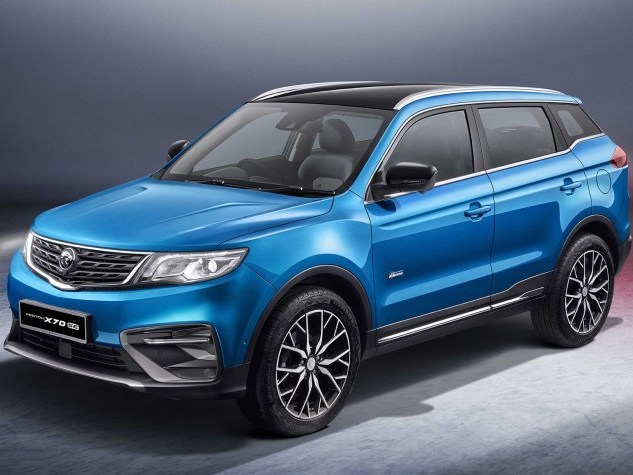
Space, Interior & Power: How Does the Proton X70 Excel in Every Aspect?
WilliamApr 14, 2025
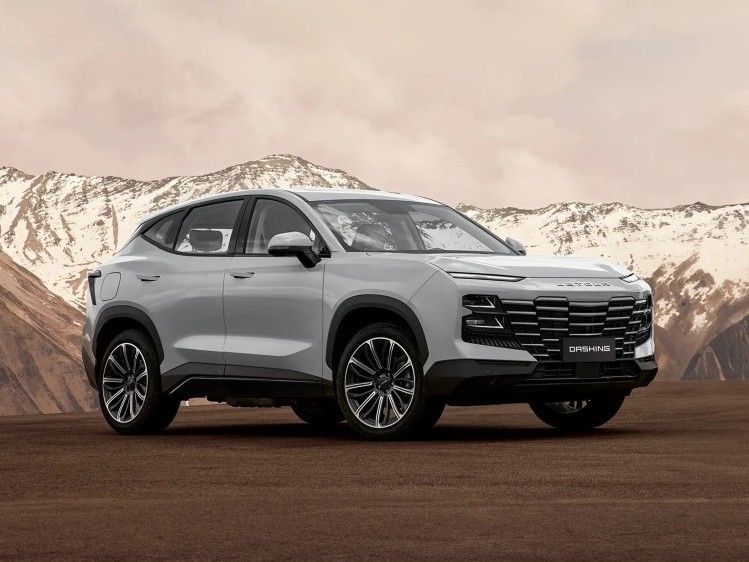
Jetour Dashing Set to Launch in Malaysia on April 9, Competing with the CR-V
MichaelApr 3, 2025
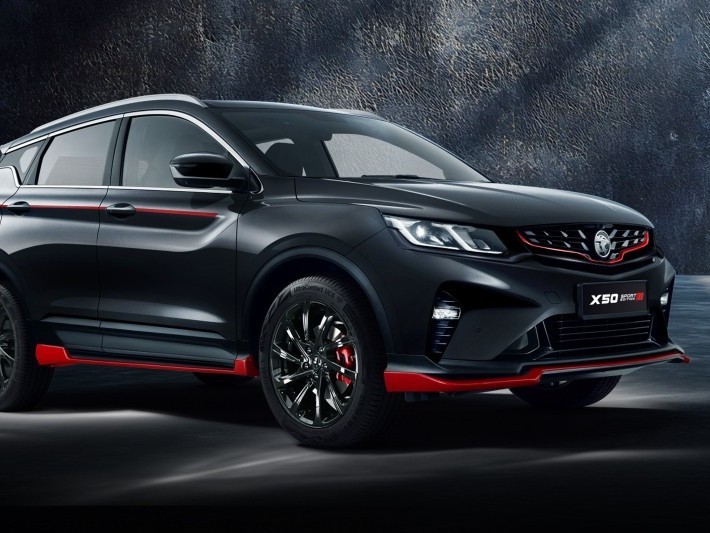
In 2025, should you choose the Proton X50 or X70?
RobertFeb 28, 2025
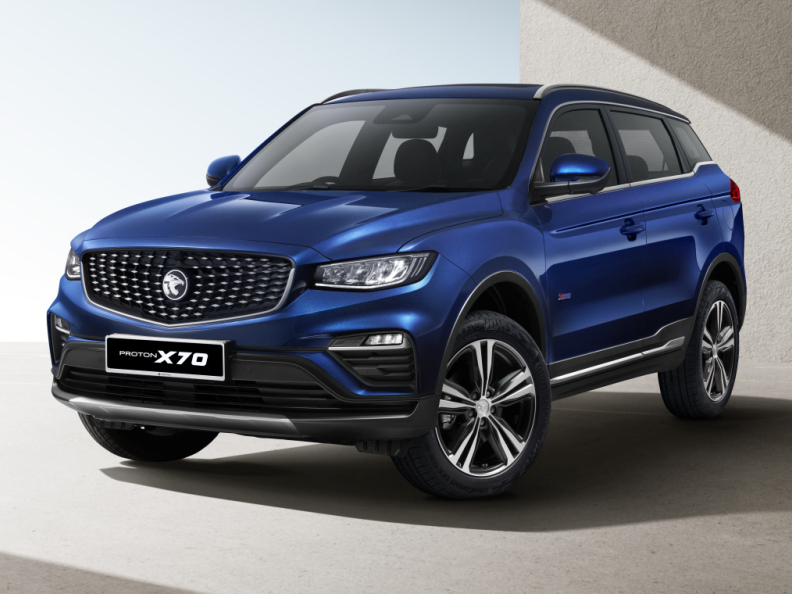
What is the fuel consumption of X70? Is X70 a worthwhile SUV to buy?
RobertFeb 27, 2025
View More












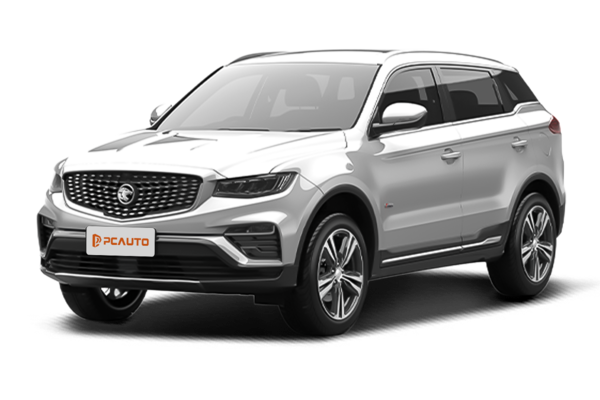



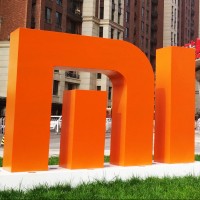

Pros
Cons